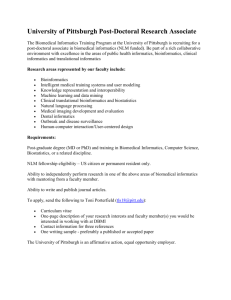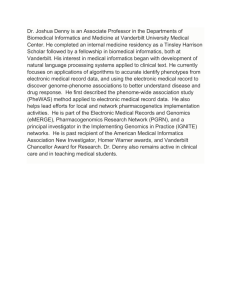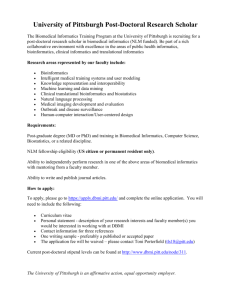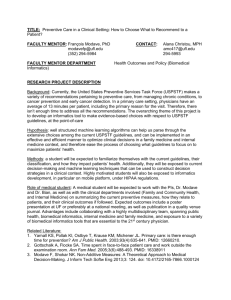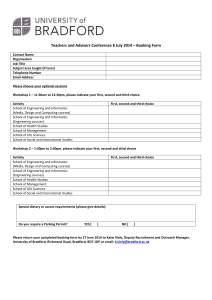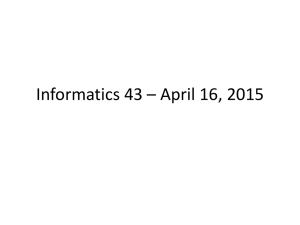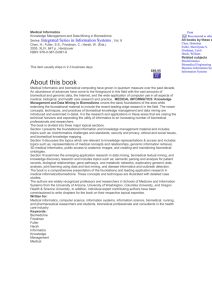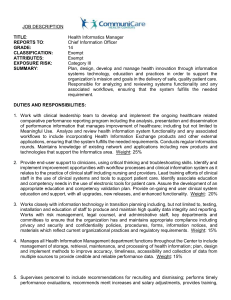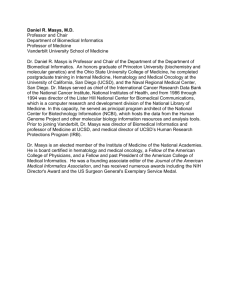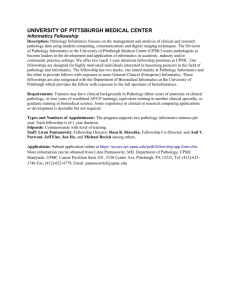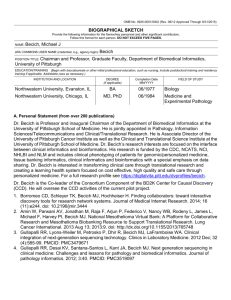here - Health Sciences Diversity
advertisement
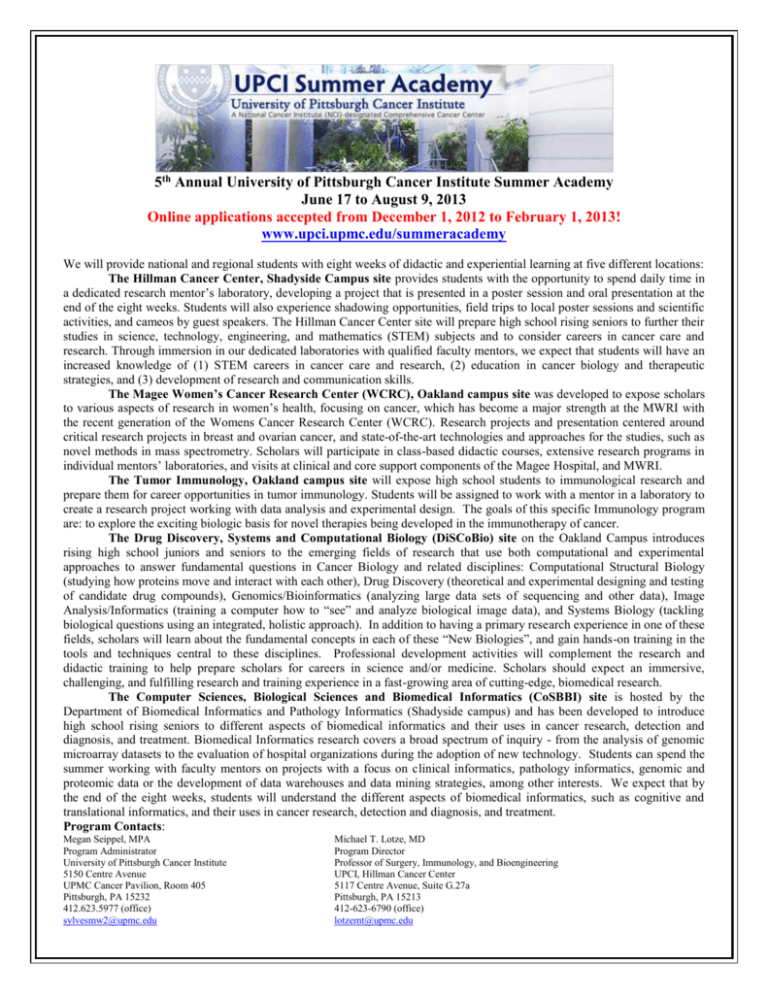
5th Annual University of Pittsburgh Cancer Institute Summer Academy June 17 to August 9, 2013 Online applications accepted from December 1, 2012 to February 1, 2013! www.upci.upmc.edu/summeracademy We will provide national and regional students with eight weeks of didactic and experiential learning at five different locations: The Hillman Cancer Center, Shadyside Campus site provides students with the opportunity to spend daily time in a dedicated research mentor’s laboratory, developing a project that is presented in a poster session and oral presentation at the end of the eight weeks. Students will also experience shadowing opportunities, field trips to local poster sessions and scientific activities, and cameos by guest speakers. The Hillman Cancer Center site will prepare high school rising seniors to further their studies in science, technology, engineering, and mathematics (STEM) subjects and to consider careers in cancer care and research. Through immersion in our dedicated laboratories with qualified faculty mentors, we expect that students will have an increased knowledge of (1) STEM careers in cancer care and research, (2) education in cancer biology and therapeutic strategies, and (3) development of research and communication skills. The Magee Women’s Cancer Research Center (WCRC), Oakland campus site was developed to expose scholars to various aspects of research in women’s health, focusing on cancer, which has become a major strength at the MWRI with the recent generation of the Womens Cancer Research Center (WCRC). Research projects and presentation centered around critical research projects in breast and ovarian cancer, and state-of-the-art technologies and approaches for the studies, such as novel methods in mass spectrometry. Scholars will participate in class-based didactic courses, extensive research programs in individual mentors’ laboratories, and visits at clinical and core support components of the Magee Hospital, and MWRI. The Tumor Immunology, Oakland campus site will expose high school students to immunological research and prepare them for career opportunities in tumor immunology. Students will be assigned to work with a mentor in a laboratory to create a research project working with data analysis and experimental design. The goals of this specific Immunology program are: to explore the exciting biologic basis for novel therapies being developed in the immunotherapy of cancer. The Drug Discovery, Systems and Computational Biology (DiSCoBio) site on the Oakland Campus introduces rising high school juniors and seniors to the emerging fields of research that use both computational and experimental approaches to answer fundamental questions in Cancer Biology and related disciplines: Computational Structural Biology (studying how proteins move and interact with each other), Drug Discovery (theoretical and experimental designing and testing of candidate drug compounds), Genomics/Bioinformatics (analyzing large data sets of sequencing and other data), Image Analysis/Informatics (training a computer how to “see” and analyze biological image data), and Systems Biology (tackling biological questions using an integrated, holistic approach). In addition to having a primary research experience in one of these fields, scholars will learn about the fundamental concepts in each of these “New Biologies”, and gain hands-on training in the tools and techniques central to these disciplines. Professional development activities will complement the research and didactic training to help prepare scholars for careers in science and/or medicine. Scholars should expect an immersive, challenging, and fulfilling research and training experience in a fast-growing area of cutting-edge, biomedical research. The Computer Sciences, Biological Sciences and Biomedical Informatics (CoSBBI) site is hosted by the Department of Biomedical Informatics and Pathology Informatics (Shadyside campus) and has been developed to introduce high school rising seniors to different aspects of biomedical informatics and their uses in cancer research, detection and diagnosis, and treatment. Biomedical Informatics research covers a broad spectrum of inquiry - from the analysis of genomic microarray datasets to the evaluation of hospital organizations during the adoption of new technology. Students can spend the summer working with faculty mentors on projects with a focus on clinical informatics, pathology informatics, genomic and proteomic data or the development of data warehouses and data mining strategies, among other interests. We expect that by the end of the eight weeks, students will understand the different aspects of biomedical informatics, such as cognitive and translational informatics, and their uses in cancer research, detection and diagnosis, and treatment. Program Contacts: Megan Seippel, MPA Program Administrator University of Pittsburgh Cancer Institute 5150 Centre Avenue UPMC Cancer Pavilion, Room 405 Pittsburgh, PA 15232 412.623.5977 (office) sylvesmw2@upmc.edu Michael T. Lotze, MD Program Director Professor of Surgery, Immunology, and Bioengineering UPCI, Hillman Cancer Center 5117 Centre Avenue, Suite G.27a Pittsburgh, PA 15213 412-623-6790 (office) lotzemt@upmc.edu
